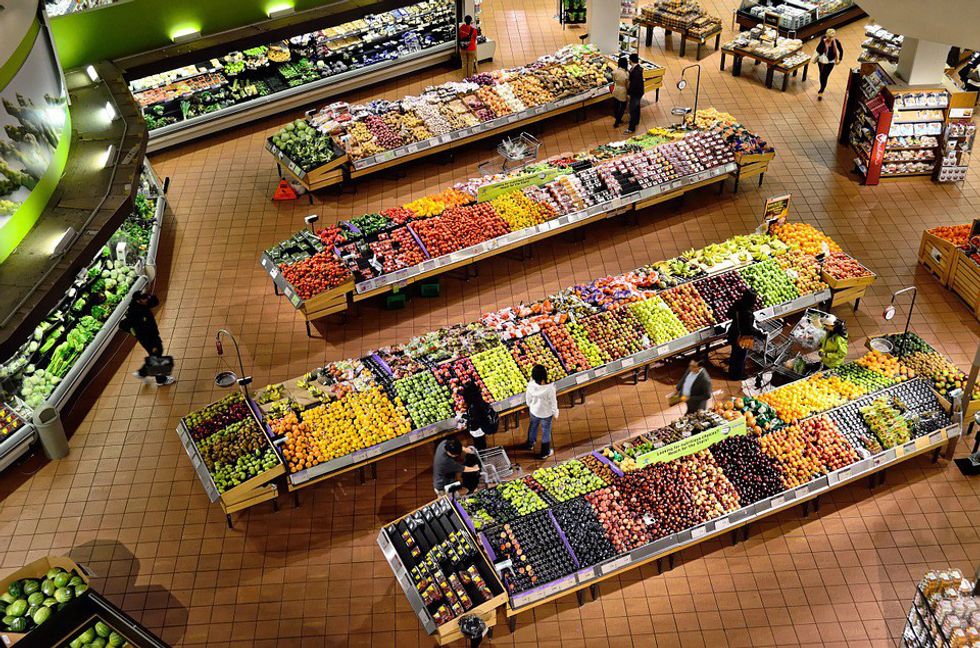Last Monday, Amazon delivered the news of plans for an enhanced grocery shopping center that could be the future of retail. With no check-out kiosks and no lines, they hope to create a better and faster experience for all. Through deep learning algorithms, computer vision and sensor fusion (something Amazon calls "Just Walk Out" technology) customers will be able to enter the store and check-in with their smartphone. From there, you grab what you need and walk out.
The store will charge your Amazon account for the items and send you a receipt with no wait. Amazon is currently testing out their new 1,800 square foot shopping facility on Amazon employees in Seattle, Washington, and if all goes well, it will open to the public in early 2017. You can watch a video and check out the FAQs on the Amazon website here.
While I think this has potential, there are quite a few aspects that Amazon is staying eerily quiet about, including how exactly they are going to pull it off. Ignoring the hype, I can only think about the potential problems for this futuristic concept. How does it work?
In March 2015, Recode posted an article about a patent application filed by Amazon that outlined some of the ideas that would make the new store run smoothly. The article suggests we may have a reason to be concerned about our privacy with this system. They say, "the application describes the use of cameras that would snap photos to show, for example, when a person entered the facility, when she removed something from a shelf and when she left with an item in her hand. There is mention of facial recognition... User information may include, but is not limited to, user-identifying information (e.g., images of the user, height of the user, weight of the user), a user name and password, user biometrics, purchase history, payment instrument information (e.g., credit card, debit card, check card), purchase limits, and the like.” This is the same idea as an employee following you around the entire store, watching what you pick up, and writing it down, but through cameras, computers and technology we don't understand. Another theory introduces the use of RFID, or Radio Frequency Identification, which lets retailers identify products just like bar codes do, but through a wireless network. With the little information we have on the technology, Amazon claims it's similar to the specifics of self-driving cars.
But the problems don't end with the potential privacy invasions. The gist of Amazon's store has what we know as "shoplifting" as their selling point. How easy will it be to enter the store and just not scan your smartphone, essentially keeping yourself out of the system altogether?
What about the individuals who don't have smartphones? No smartphone, no sale. And something that happens to many as a regular occurrence--what if your phone dies while you're shopping? How will groceries be bagged, if at all? How will they handle a return policy? Picture this. Amazon Go opens up to the public and a father and his two young daughters decide to go shopping. The girls are tossing into the cart--this snack and that snack--while Dad shops, too. A perfectly logical and realistic situation. If a human being watching diligently behind a camera isn't involved, how will Amazon track multiple people putting multiple items in a cart? Do each of the daughters need a smartphone and Amazon account or can they somehow be "linked" to the main account? How will this technology know the girls belong to the father in the first place?
There are many unanswered questions about the specifics of Amazon Go. For now, all we can do is watch and wait for more information.










 The minimum wage is not a living wage.
StableDiffusion
The minimum wage is not a living wage.
StableDiffusion
 influential nations
StableDiffusion
influential nations
StableDiffusion












